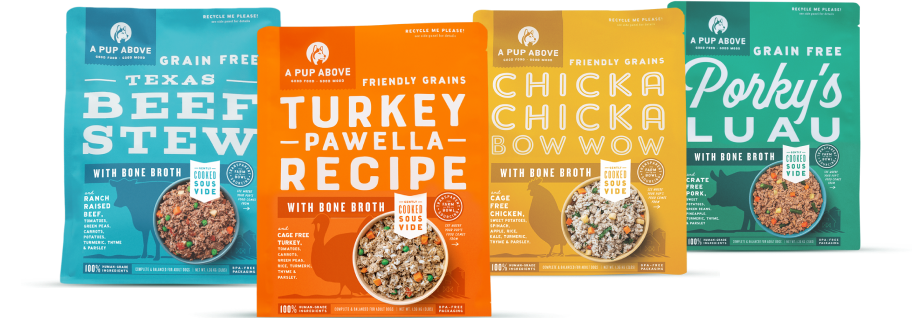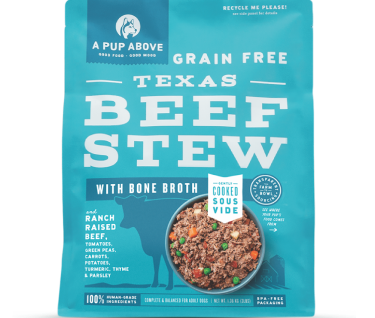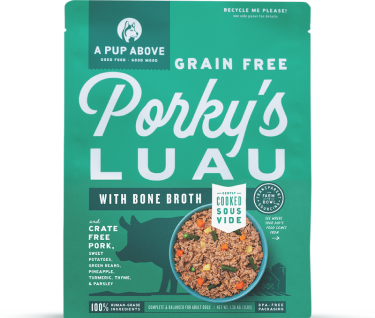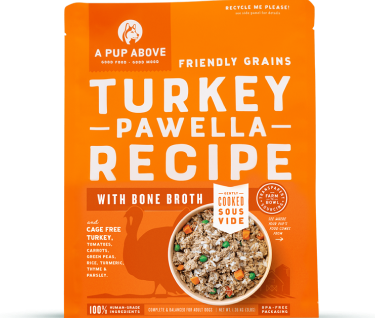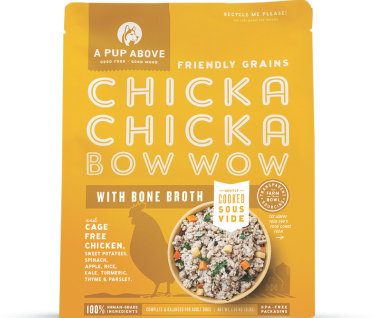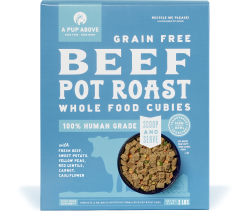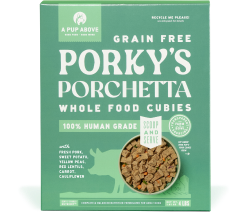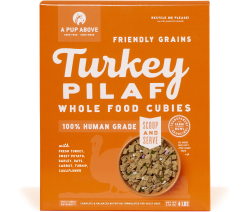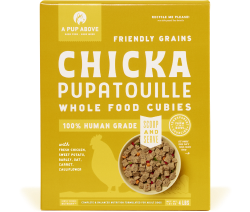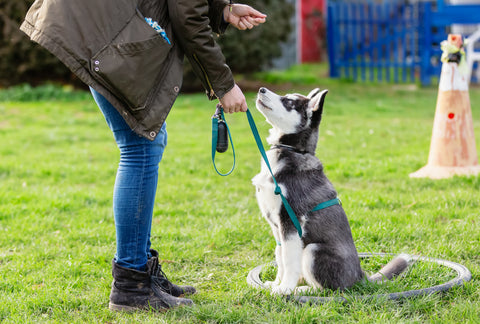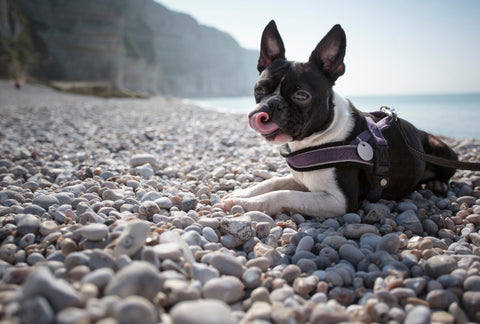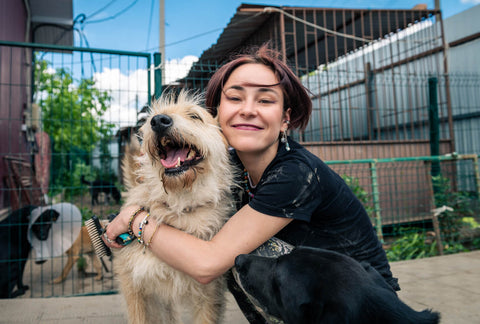
When your four-legged companion starts sniffling or sneezing, it's natural to wonder: Can dogs get colds just like us? At A Pup Above, we understand how concerning seeing your dog under the weather can be.
While dogs do experience their own version of colds, there are some differences from what we humans encounter. As dedicated pet parents and advocates for canine health, we believe it's essential to understand these differences to ensure our furry friends receive the best care.
In this article, we'll dive into the world of dog colds, from symptoms and causes to the best ways to support your pup through a sniffle or sneeze.
Do Dogs Get Colds Like Humans?
The short answer is yes, dogs can catch colds, but not in the same way humans do. Canine colds are caused by viruses and bacteria different from those affecting humans, meaning we can't pass our colds to our dogs and vice versa.
The symptoms might seem familiar — coughing, sneezing, runny nose, and lethargy — but the underlying causes can vary significantly. In dogs, a common cause of cold-like symptoms is the Canine Respiratory Coronavirus, distinct from the human strains.
Another frequent culprit is the Bordetella bacterium, often associated with kennel cough. While these conditions share some similarities with human colds, they have their own unique characteristics and treatments.
Understanding these differences is crucial for pet parents. It's important to remember that what works for human colds won't necessarily be safe or effective for our canine companions.
Being informed about the specifics of canine health helps us make better decisions for our pets, ensuring they receive the appropriate care and attention they need.
What Causes Sniffles and Sneezes in Dogs?
Various factors can lead to your dog showing symptoms like sneezing and sniffling.
Here's a breakdown of some common causes:
- Allergies: Just like humans, dogs can be allergic to a range of substances, from pollen and dust to certain foods. These allergies can trigger respiratory symptoms similar to colds.
- Environmental Factors: Smoke, chemical fumes, and even strong perfumes can irritate your dog's respiratory system, leading to sneezing and coughing.
- Canine-Specific Respiratory Infections: Conditions such as kennel cough and canine influenza are unique to dogs and can cause symptoms that mimic a cold.
- Parasites: Some parasites, like lungworms, can cause respiratory distress in dogs.
- Foreign Bodies: Dogs are curious creatures, and sometimes they inhale or ingest things that can irritate their respiratory tract.
Maintaining a clean, healthy environment is key to preventing these issues. Regular cleaning, avoiding smoking near pets, and using pet-friendly cleaning products can go a long way in keeping your dog's respiratory system healthy.
Additionally, being mindful of what your dog is exposed to outdoors, like pollen or potential allergens, can help manage or prevent respiratory symptoms.
What Are the Signs of a Cold in Dogs?
Identifying when your dog might be coming down with a cold is key to providing timely care.
Common symptoms to look out for include:
- Persistent Coughing: A dry, hacking cough can be a sign of respiratory infection.
- Sneezing and Nasal Discharge: Just like humans, dogs can get runny noses and sneeze when they have a cold.
- Lethargy: If your usually energetic pup is unusually tired, it could indicate they’re feeling under the weather.
- Loss of Appetite: Dogs often eat less when they're not feeling well.
- Fever: Though harder to spot, a fever can accompany a dog's cold.
As attentive pet parents, it's important to monitor these signs and understand your dog's normal behavior. If you notice persistent symptoms or a significant change in their behavior, it's time to consult your veterinarian. They can provide a proper diagnosis and guide you on the best course of action.
How Do I Care for My Dog With a Cold?
Caring for a dog with a cold mostly involves supportive measures to help them feel more comfortable while their body fights off the infection.
Here are some tips:
- Rest: Ensure your dog has a quiet, comfortable place to rest.
- Hydration: Keep fresh water available to help your dog stay hydrated.
- Humidity: A humidifier can help ease breathing if your dog is congested.
- Veterinary Guidance: Always consult with your vet for the best treatment plan. They might prescribe medications to relieve symptoms.
During recovery, providing your dog with nutritious, easy-to-digest food is crucial. Our gently cooked, human-grade dog foods, like our Turkey Pawella and Texas Beef Stew, are packed with wholesome ingredients and bone broth. This tempts picky eaters and supports their immune systems with vital nutrients.
How Do I Prevent Cold-Like Symptoms in Dogs?
As the saying goes, prevention is better than cure. While it might not be possible to prevent all colds, there are steps you can take to reduce your dog's risk of falling ill.
- Vaccinations and Regular Check-Ups: Keeping up to date with your dog's vaccinations is crucial in defending against specific respiratory infections like canine influenza and kennel cough. Regular vet check-ups will also help detect any potential health issues sooner.
- Good Hygiene: Simple practices like washing your hands before handling your pet and promptly cleaning up after meals can help maintain a virus-free environment.
- Healthy Diet: At A Pup Above, we believe in the power of nutrition. Feeding your dog a balanced, nutritious diet can strengthen their immune system, making them more resistant to infections.
- Avoid Sick Dogs: If you know a dog showing signs of a respiratory infection, it's best to keep your pet at a safe distance until that dog has completely recovered.
- Care With New Environments: Be cautious when introducing your pup to new environments, like dog parks and boarding facilities, where they might be exposed to infection.
Understanding your dog's behavior, maintaining a clean environment, and feeding a balanced diet can significantly impact their health. It's all about early detection and providing the right care to help them recover swiftly from any sniffles or sneezes.
When Should I Seek Veterinary Care?
Having an under-weather dog can certainly ring alarm bells. However, it's important to remember that not every sneeze or cough warrants a trip to the vet.
A couple of days of rest and proper hydration may be all that is needed. But, if you notice that your pup's symptoms persist beyond a few days or they exhibit more serious signs like difficulty breathing, refusal to eat, or a significantly high fever, it's important to reach out to your trusted veterinarian promptly.
Seeking professional advice will ensure your dog gets the necessary care they require while offering you peace of mind. Regular vet check-ups and keeping a close eye on any behavioral or appetite changes can ensure that your furry companion leads a comfortable, sniffle-free life. After all, nothing says “I love you” better than caring for your pet's health and happiness.
A Final Word
Seeing your furry friend battle sniffles and sneezes can be disconcerting, but remember, you're not alone. We're here at A Pup Above, equipped with knowledge, nutritious meals, and a shared love for dogs.
Together, we can boost your pup's health and swiftly navigate through these cold-like symptoms. It's all about providing them the right care, feeding them the wholesome goodness they need, and being there for them — just as we're here for you.
Let's face it head-on so they can return to their playful, tail-wagging selves, ready for countless sneeze-free adventures ahead!
Sources:
Can Dogs Get Colds? | American Kennel Club
Canine Respiratory Coronavirus | PMC
Sneezing and Nasal Discharge in Dogs | Maddie's Fund | Champions for Animal Welfare
When Your Dog Has a Cold - FOUR PAWS International | Animal Welfare Organisation

